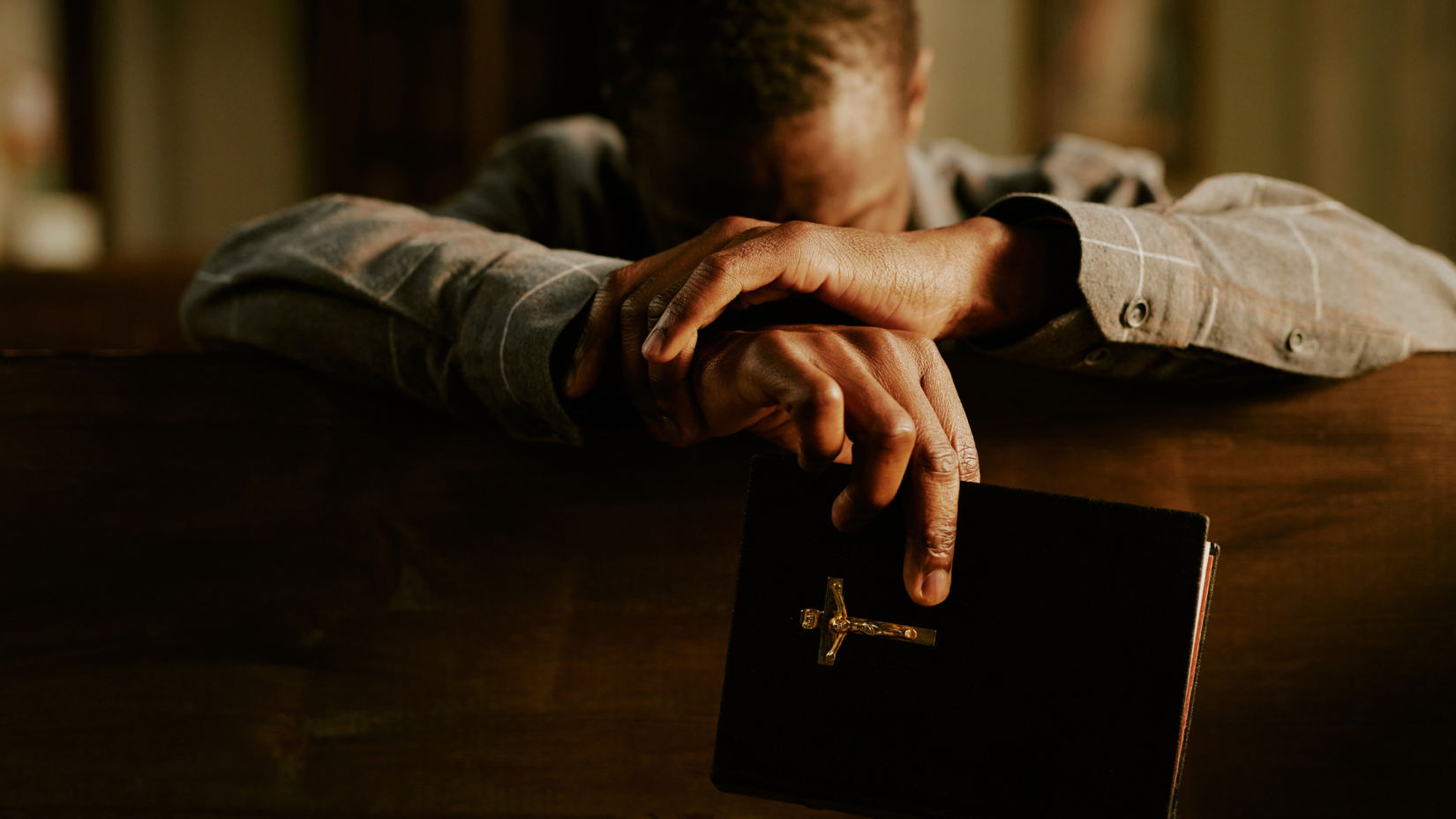

Brax Carvette, Youth Minister
Brax is the youth pastor at NorthRidge Fellowship and has been at NorthRidge since 2006. He and his wife, Jessica, have a son, a daugher and a child on the way. They live in Elk River, Minnesota.
We’ve all had doubts
Perhaps we’re experiencing them right now or have experienced them in the past: nagging thoughts of uncertainty. Sometimes they confront us when we’ve heard a secular scientist spout off spectacularly different thoughts than our own. Sometimes like a sliver in your palm they fester without divine tweezers pulling them out. Doubts. “Can we really know what’s true? The universe is so big, isn’t it prideful to think we can rightly know anything about God?” Or, “What need is there for an organized institution called ‘Church’? What good has it done in the course of human history? Wouldn’t it be better to live and let live than to go on about all of this Jesus-mumbo-jumbo?” Whether frequent or infrequent, persistent or passing, doubts are something every believer experiences at one point or another. In the face of such uncomfortable doubts, some try to comfort a doubting soul by telling them, “it’s okay to have doubts.” But is that true? Is it okay to have doubts? How does doubt work?
Where do doubts come from?
Most of the time, we assume that the doubts we experience are purely intellectual problems. This is a very real possibility. We hear things about science or suffering in our world and wonder how the Bible makes sense of it all. These very real problems need to be addressed, but Scripture doesn’t just point to intellectual problems as the source of doubts. The other source is called “unbelief.”
Unbelief
The state of unbelief goes deeper than mere intellectual issues. It is a disposition of the heart. In this state, intellectual arguments might actually be a cover-up for the obstinate, unbelieving heart that beats within. Unbelief is not purely intellectual. It is a matter of what the heart loves, not what the mind thinks. Listen to Jesus in John chapter 3:18, “Whoever believes in [the Son of God] is not condemned, but whoever does not believe is condemned already, because he has not believed in the name of the only Son of God.”
So Jesus is talking about believing and unbelieving people and that unbelieving people will be judged. What is the criteria of Jesus’ judgement? “And this is the judgment: the light has come into the world, and people loved the darkness rather than the light because their works were evil” (v. 19). The unbelieving person is the kind of person that loves darkness rather than light—loves evil rather than good. Of course, these people are not like the classic Disney villains that are bent on evil for evil’s sake. They are our friends, our family, our coworkers: nice people! But, at the root, we see that their unbelief is due to a love for their own sin. When given the option between God and anything else, they would rather have anything else but God. So, their unbelief is from wanting sin, not due to intellectual hang-ups. People who live in unbelief are people who need the gospel. They need to be born again by the power of the Holy Spirit. No amount of rational arguments will change their unbelief. If you are talking to someone in a state of unbelief, know that the Word of God is the only word powerful enough to change their desires from sin-loving to God-loving. Ask them lots of questions, let them know that you care about them more than you care about having the right answers and pray for them often.
Ignorance
The state of ignorance is different than the state of unbelief. Here, a person really has doubts simply because of intellectual hang-ups. They do not know enough to answer the hard questions that they’ve asked about the Bible. They might doubt that Jesus really died for them because they don’t know what it means that Jesus died for them. After all, how could a bunch of Romans beating up a Jewish man in the first century mean the forgiveness of sins? Or, she could doubt the goodness of God. How could an all-loving and all-powerful God allow such suffering in the world? In cases like these, the remedy for the person in the state of ignorance might not necessarily be that they be born again (in order for them to have a new heart that loves God). Perhaps the person already is born again! In that case, it won’t do any good for our struggling brother or sister to tell them to be born again (like we want for someone who is living in the state of unbelief).
If such a person asks us a question like the ones I’ve given above, they don’t need for us to get defensive. First, they need to know that they’re talking to someone that cares. We need to understand where they’re coming from. Perhaps they are questioning God’s goodness because a loved-one is slowly dying of cancer. Perhaps they’re doubting Jesus’ forgiving work on the cross because they grew up in a strict Christian home that didn’t show a lot of forgiveness. After we’ve understood them, they need to be taught gently. Teaching is a two-step process: First the word of God should be their Teacher: Give them Bible passages that address their question for them to read when they ask you a question as much as you are able. Secondly, after they have read for themselves what the Bible says, they should be taught by those around them that have walked with Jesus longer than they have in a loving community.
Much Faith
God moves us from the state of unbelief, through our ignorance and into “much faith.” I hope that it is obvious that the states of unbelief and ignorance are places that you cannot live. Unbelief is to be changed to belief. Ignorance is to be changed to knowledge. The state that the Christian is to live in is one of much faith. The state of faith is a faith that knows, as opposed to what is called “blind faith.” True faith knows what it believes. But here it takes a step further than what unbelief does, it agrees with what it knows. Not only this, but real faith goes beyond what the state of ignorance does. It doesn’t just know what it believes and agree with it, it also trusts the object of its faith: Jesus Christ. It is this deep trust that sets “much faith” apart from the rest. It is the element of the good soil that causes the sown seed to yield a hundredfold (see Matthew 13:23). Unbelief is like never participating in the race, ignorance is like starting the race but sitting down 30 feet from the starting line, much faith is like finishing the marathon.
So is it okay to doubt?
So is it okay to doubt? It depends. It might be a smokescreen to conceal my unbelieving heart. In that case, it is not okay to doubt: it is aiding my rebellion against the God who loves me. If a believer has genuine intellectual questions about the world God has created and the word that God has written, then this doubt is covered by the blood of Jesus and Jesus walks through this darkness of doubt with them. In your doubt, God still loves you. But God will not keep you in your doubt. If you have doubts, fight for faith. Seek answers to your questions in God’s Word. God will bring you out of doubt and into deep faith.


Contact Us
If you have questions about an article you read on our blog, reach out to Brax Carvette, Blog Editor at braxc@nrf.life or call 763.270.6425.
Share our Blog on Facebook!











